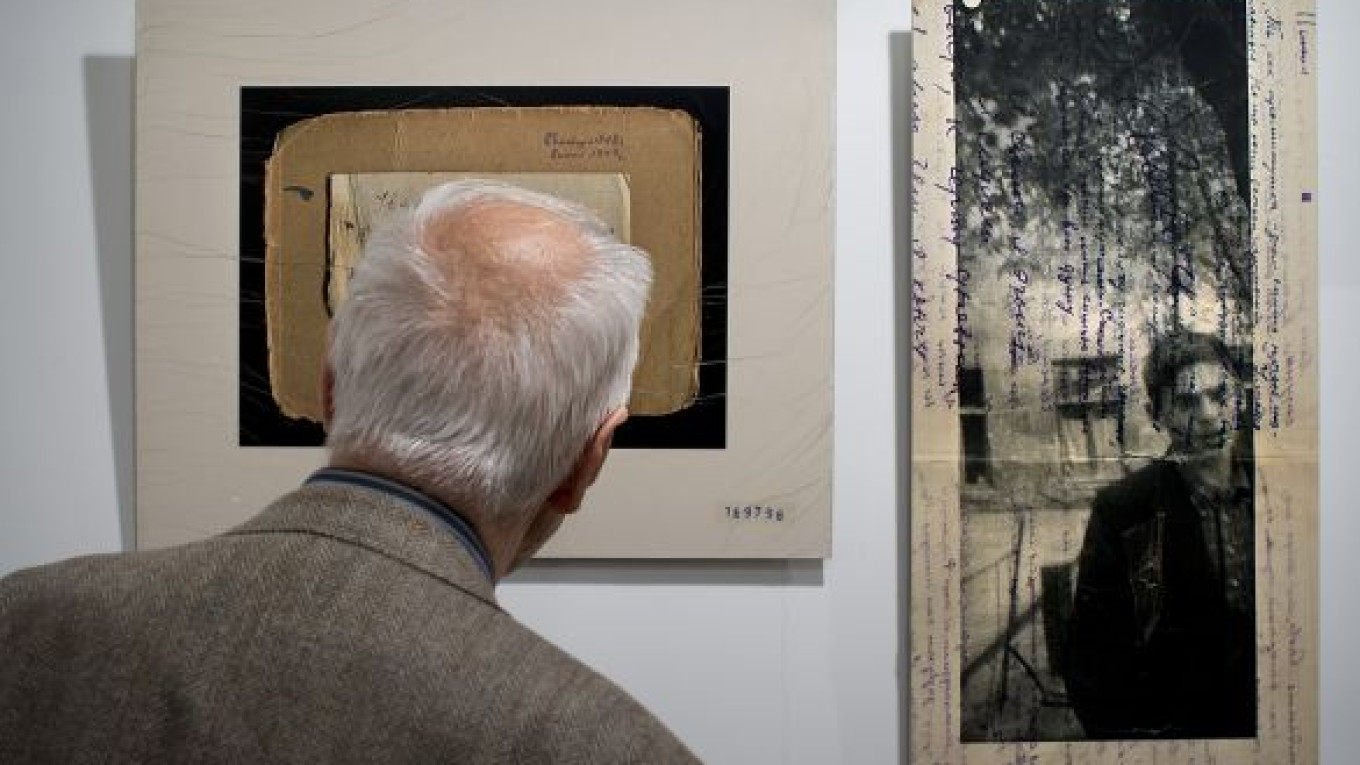When two of the oldest occupants of Winzavod Modern Art Center Marat, Guelman and Aidan Salakhova, decided to close their galleries last summer, there was talk that this spelled the end of the Moscow gallery boom.
But rumors of the death of Moscow galleries were greatly exaggerated. Despite the closures at Winzavod, new galleries keep springing up all over the city, sometimes in the unlikeliest places.
Take Kazansky Station, for instance. After elbowing through the throngs of mostly unpleasant regulars of Komsomolskaya Ploshchad, where three of the city's main train stations stand next to each other, you'll reach the Tsar Tower (2 Komsomolskaya Ploshchad), directly behind the main building with the famous zodiac clock. The gallery has a separate entry on the side.
Tsar Tower was originally designed by architect Alexei Shchusev to host the royal family when they used the railroad, but it never served its intended purpose.
Now, in interiors restored to all their tsarist glory, you can browse through a Silver Camera photo exhibit. It's the 10th time this contest has been organized by the Multimedia Art Museum, formerly known as the Moscow House of Photography.
There are no revelations here. All the themes are expected — protests, hipsters in Gorky Park, working-class people in shabby outskirts. But the exhibit is still worth going to, if only to check out the spectacular venue. You can still hear the incessant noise of the train stations nearby and catch a glimpse of the main reception hall through the closed glass doors in the middle of the gallery.
The exhibit of photographs by the Silver Camera finalists runs until Feb. 19.
Kazansky Station is not the only venerable Moscow institution where art has found a home. If you're looking for Pobeda Gallery on Bolotny Ostrov, don't. It's not there anymore.
It now resides on the third floor of the third line of GUM (3 Krasnaya Ploschad). This third floor, third line has seen quite a few changes during the past couple of years. It is home to an upscale movie theater and a travel-themed Respublika bookstore branch, and it now also hosts a gallery known for exhibiting cutting-edge art.
Currently on display is a solo show by Ilya Piganov, a considerably well-known artist. It's called "Volume 3. The Piganovs" and consists of several objet trouve works that originated in the Piganov family archives, such as old photographs, diary pages and household items.
Layered and lacquered, they are meant to be preserved memories. The exhibition is on until Mar. 14.? ?
Umlaut is an altogether different breed of a gallery that opened in November in the middle of Gogolevsky Boulevard. Its inconspicuous entrance is easy to miss, so watch out for the sign (23 Gogolevsky Boulevard, +7-495-697-0966).
The gallery's owner, publisher Georgy Yeryomin, has said he is interested mostly in emerging artists whose oeuvre developed already in the 21st century. ?
"I only exhibit works I fell in love with and pursue projects that make me happy," Yeryomin said.
One such project is a showcase of the work of young artists from Dagestan. In December, four artists had exhibitions, and this year Umlaut will continue to present work from the republic, culminating in a large exhibition in the fall that will coincide with the publication of a book devoted to Dagestani contemporary art.
Umlaut doesn't focus on just the Caucasus. On Tuesday, the gallery will open a graphics exhibition by Natalya Krasilnikova, an artist from St. Petersburg.
Umlaut is officially called a "place of action." It's not only a gallery but also a bookstore and a coffee shop that hosts art-house movie showings, events for lesbian, gay, bisexual and transgender people, and poetry slams, among other events.
Contact the author at artsreporter@imedia.ru
Related articles:
A Message from The Moscow Times:
Dear readers,
We are facing unprecedented challenges. Russia's Prosecutor General's Office has designated The Moscow Times as an "undesirable" organization, criminalizing our work and putting our staff at risk of prosecution. This follows our earlier unjust labeling as a "foreign agent."
These actions are direct attempts to silence independent journalism in Russia. The authorities claim our work "discredits the decisions of the Russian leadership." We see things differently: we strive to provide accurate, unbiased reporting on Russia.
We, the journalists of The Moscow Times, refuse to be silenced. But to continue our work, we need your help.
Your support, no matter how small, makes a world of difference. If you can, please support us monthly starting from just $2. It's quick to set up, and every contribution makes a significant impact.
By supporting The Moscow Times, you're defending open, independent journalism in the face of repression. Thank you for standing with us.
Remind me later.


